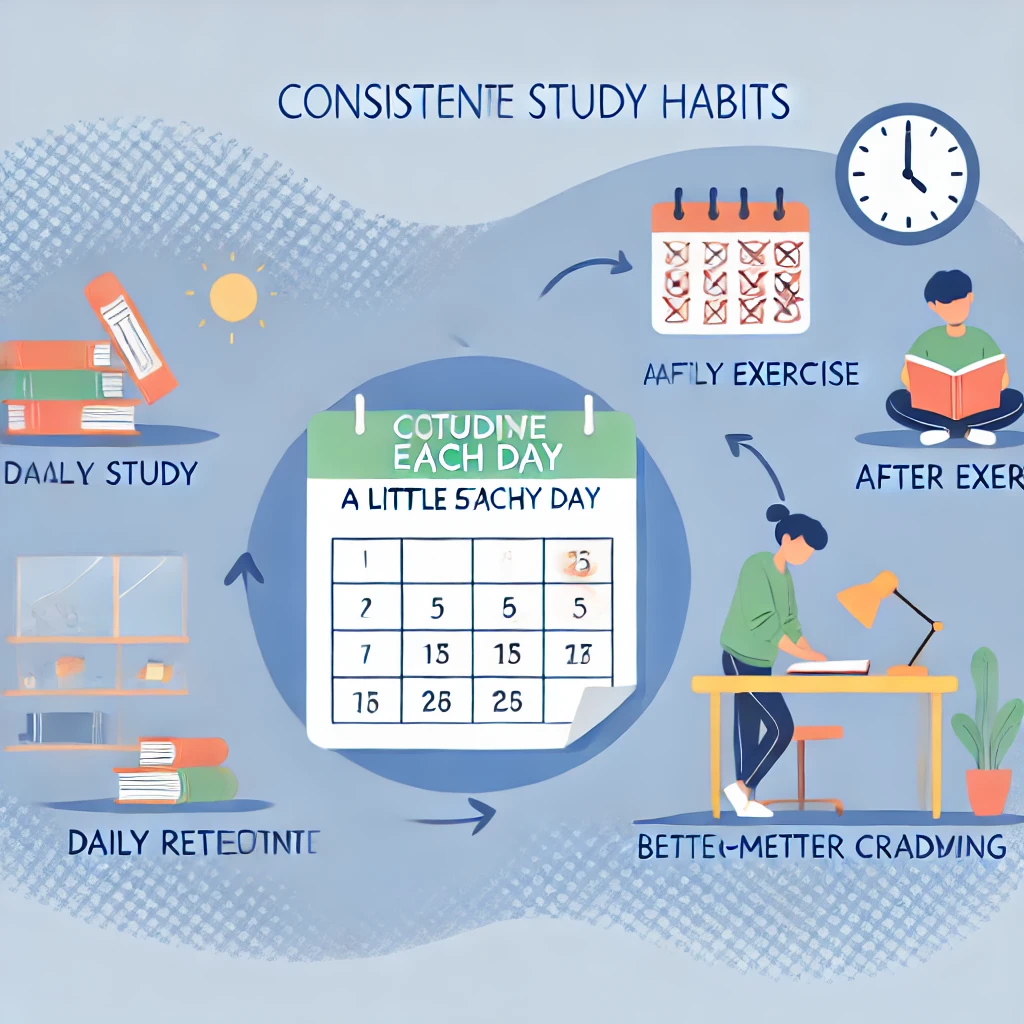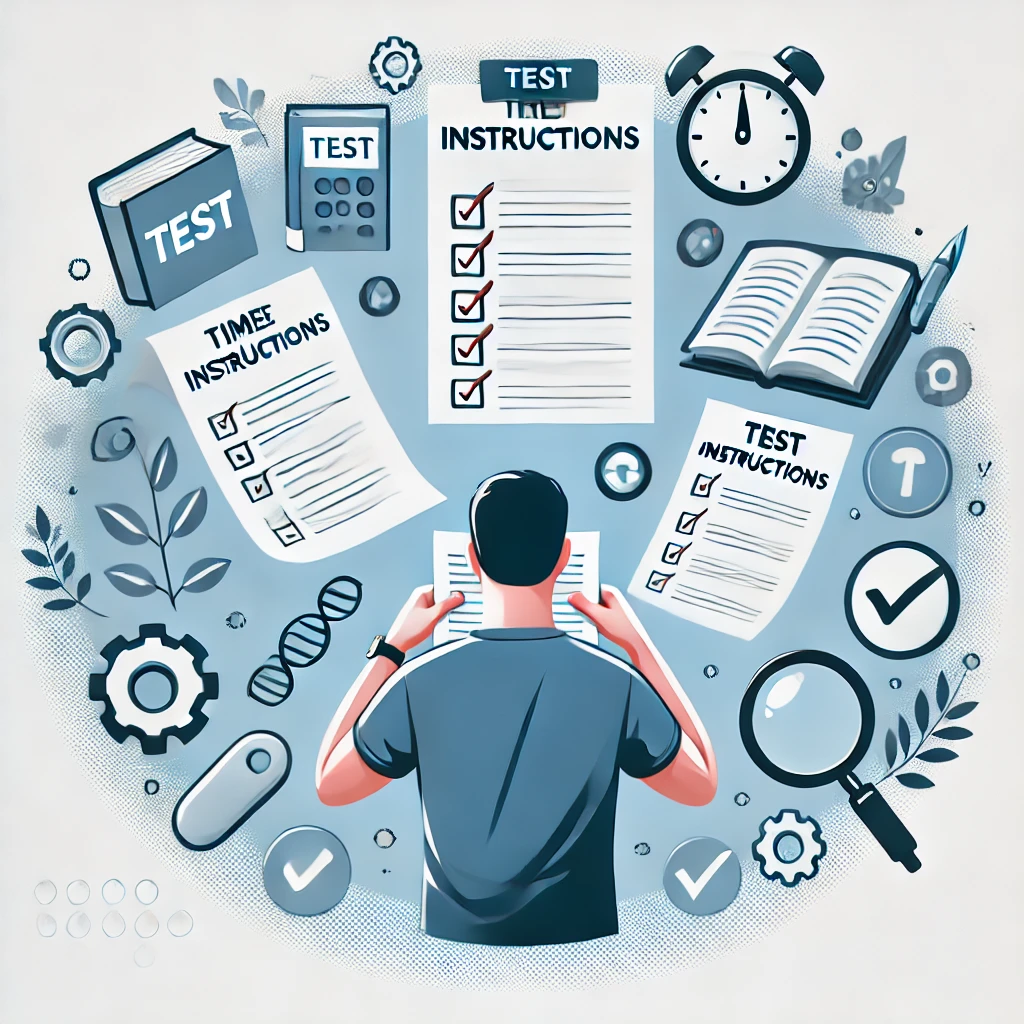Preparing for timed assessments is key to doing well. This includes big tests like the SAT, ACT, or school exams. These tips will help you do better on your tests and feel less nervous.
Understanding the material and developing good study habits is crucial. As Alexander Graham Bell said, “Preparation is the key to success.” Follow a study schedule and use the many online tutorials available. Daily reviews and making your study guides will also help.

It’s also important to practice like you’re taking the real test. Use official test materials, time your practice tests, and learn from your mistakes. Knowing the test setup and instructions can help you avoid mistakes on test day.
Get enough sleep and eat a good breakfast before your test. These habits, along with positive thinking and calming breaths, will boost your focus and confidence.
By using these tips and staying in touch with your teachers, you’ll be ready for your timed assessments. Good luck!
Develop Effective Study Habits in Advance
For top grades, start your study habits early. Boost your learning by staying consistent and using the right methods. Here’s how to make the most of your study time.
Consistency Over Cramming
Studying a little each day is better than last-minute cramming. People who study regularly remember more. Set study times for when you learn best, such as in the morning or after exercise.

The Pomodoro method is great. You study for 20 minutes, then take a break. Short study sessions work better than long ones, research shows.
Daily Review Sessions
Go over your notes every day. This slowly builds your knowledge. Reviewing before classes helps you remember better and learn more.
Use active study methods. This means touching and seeing what you’re learning, not just reading. Weekly reviews also help keep things fresh in your mind.
Create Your Own Study Guides
Make study guides that fit your style. This helps you remember better. You learn by connecting new ideas to what you already know.
Use diagrams and teach someone else. This deepens your understanding. Regular reviews and making good study guides can really boost your grades.
Use Practice Tests to Simulate Testing Conditions
Getting ready for big tests means more than just hitting the books. It takes real-world practice and good planning. Using practice tests is key for a full prep and to feel at home with the test’s topics and style.
Find Official Test Releases
Working with official test content gives you a real idea of what to expect. The Association of American Medical Colleges (AAMC) has lots of past exams that are just like the real thing. Many students who spend a lot of time with AAMC’s materials do better. This is because they know what kinds of questions to expect and how the test looks.
Time Your Practice Tests
For real practice, make sure to time your exams as if they were the actual test. This helps you improve your time management, and shows what you need to work on. Research shows 85% of test takers do better when they time themselves. Doing things like making cheat sheets in 10 minutes makes the test prep feel more like the real thing. It helps you get used to the test’s duration.

Review and Learn from Mistakes
One of the most important parts of getting ready is looking at your test errors closely. By, fixing these mistakes, you get better at taking tests and become more confident. Understanding what you got wrong and why, helps spot where you need more work. 70% of students say practice tests help them know what they are good at and not. And 75% of those who passed their tests used practice tests a lot. This way, studying tests and learning from mistakes is a strong way to get ready for the big day.
Gather Necessary Materials the Night Before
Effective test preparation means more than just looking over your notes. It’s about being organized and planning well. Do this the night before to make your morning smooth. It cuts down on stress and helps you do better on the test.

Set Out Supplies and Materials
Get all your needed stuff ready the night before. This might be pencils, pens, a calculator, or other things you can use. Having it all set reduces worry and stops any last-minute rush.
Prepare Your Outfit
Choosing your clothes early is just as key. Pick something comfy yet right for the test. This way, you save time and feel good throughout the morning. Layering up lets you handle any room temperature and focus better.
Plan Your Breakfast
Choosing what to eat is very important too. A good breakfast keeps you sharp and full of energy. Pick foods like fruit, whole grains, and protein. Stay away from heavy or sugary items. They can make you feel slow. This will help you do well on your test.
Get a Good Night’s Sleep
Having good sleep habits is important for doing well in school. Most college students don’t sleep enough. This can make them think less clearly and feel more stressed. Getting enough quality sleep can help you score better on tests. I will share tips to help you sleep better, so you do well in school.

Establish a Sleep Routine
It’s key to go to bed and wake up at the same time every day. Experts say students do better when they have a set sleep schedule. Try to sleep at least seven hours each night. People who were given a program to help them sleep more during exams did better in school. For great advice on setting up a good sleep schedule, visit these tips.
Avoid Stimulants Before Bed
Stopping caffeine is crucial for good sleep and less stress. Caffeine can affect you for up to 12 hours, messing with your sleep and thinking. Instead, have herbal teas or decaf drinks later in the day. This will help you sleep deeper and think better. Want more advice on how to sleep well? Head over to this detailed checklist.
To sum up, sleeping well and avoiding caffeine before bed are key in lowering stress and raising your test scores. Make sleep a priority to do better on your exams. For more tips on sleep, read through this detailed guide.
Arrive Early to Settle In
Getting to your testing spot early is key for your exam day plan. It helps calm your nerves, making it easier to focus from the start. Remember, finding just a little time to adjust matters.

To manage your time well, plan to get there early. Use tools like planners to organize your schedule. This way, you can handle last-minute tasks and feel ready without stress.
Being early also lets you check out the place before the test. This means you can find important spots like bathrooms or where you’ll take the test. Knowing this ahead of time helps you avoid surprises and stay calm.
People who are good at managing time are usually less stressed and more ready. Arriving early puts you in this group. It helps you stay calm and ready for the test.
Embrace Positive Test-Day Rituals
It’s crucial to have calming activities for test days. Doing this can really help with anxiety. It makes you feel more ready for the test and stay calm. These activities boost your confidence and keep your mind positive.
Breathing Exercises
Taking deep breaths is a great way to calm down before a test. It makes you relax and lowers stress. This helps you concentrate during the test. Doing these breaths often keeps you calm all the time.
Positive Visualization
Imagining you will do well can reduce your worry. You feel more sure of yourself. It helps you stay positive and reach for your best.
Listen to Calming Music
Listening to calm music can change your mood. It makes you stress less. This easy step helps you think better on test day. Pick music that makes you feel good.
Read All Instructions Thoroughly
Starting a timed test right means reading all the instructions closely. Knowing the test format well stops you from making errors you could have avoided. Details in the instructions make clear what you need to do. This saves time and makes your test-taking smoother.

Listen to the Proctor Carefully
Listening to the proctor is key for doing well in your test. They might share key points, clear up confusion, or remind you of time rules. Be ready and listen up to understand the test better and prevent any mix-ups.
Read Test Overview
Don’t rush into the questions; first, check out the test overview. It shows you the structure and what to expect. You’ll learn about the sections, question types, and any special tips. This helps you plan your time and approach the test methodically.
Plan Your Time Assessment Strategy
Being good at managing time helps a lot in tests. Start by looking over the whole test first. Pick out the questions that are worth more points to do first.
Put time into each section based on how important it is. This way, you’ll use your time wisely and do better overall.
Scan the Entire Test
At the start, take a quick look at everything. This helps you see the test’s layout and how hard it might be. It prepares you, helping to meet what’s needed easier.
Doing this means you won’t skip over any key parts later on. It’s a smart way to manage your time during the test.
Prioritize High-Value Questions
Start with the questions that seem more important or easier. This strategy can help you get more points early. It evens the playing field for different types of learners.
Allocate Time per Section
After knowing what to focus on, plan how much time each section gets. Add up your time for a balanced approach. This makes sure you do well in every part of the test.
It also lets you know your level as you go, so you can make changes if needed. This is key to getting a good score.
FAQ
How can I effectively prepare for timed assessments?
To prepare well for timed tests, it’s key to build strong study habits. Understand the test format and practice with time limits. This will make you do better on the test and feel less nervous.
Why is consistency in studying better than cramming?
Studying a little bit each day helps remember things longer. It also makes studying less stressful. Review your notes daily to keep your knowledge strong.
How do daily review sessions contribute to exam success?
Reviewing daily keeps the information fresh in your mind. It makes remembering easier when the exam comes.
What are the benefits of creating personalized study guides?
Making your study guides helps you learn better. It fits how you learn. They are also great for quickly reviewing lots of information.
How do practice tests simulate testing conditions?
Taking practice tests helps you understand the test’s format and timing. It makes you comfortable with the test’s content and pace. This way, the real test feels more familiar, and you manage your time better.
Why should I use official test releases for practice?
Using real tests for practice means you get a feel for the actual content and structure. It helps you set real expectations for the test.
How can reviewing mistakes from practice tests improve my performance?
Fixing mistakes helps show what you need to study more. Learning from these mistakes then makes you do better on the actual test.
Why is it important to gather materials the night before an exam?
Preparing the night before helps you start your day calmly. It also makes sure you’re ready for the test and stay focused.
What is the significance of a good night’s sleep before a test?
Getting enough sleep is crucial for thinking clearly and managing stress. Avoiding drinks like coffee before bed helps you sleep well. This improves your memory and focus on test day.
Why should I arrive early on test day?
Being early helps you feel more at ease in the test room. It makes you calmer and ready for the test, increasing your chances of doing well.
How can positive test-day rituals help with exam anxiety?
Doing things like deep breathing, imagining success, or listening to calm music can help you relax. This makes you more confident and focused for the test.
Why is it crucial to read all test instructions thoroughly?
Reading everything carefully makes sure you know what to do. This way, you avoid simple mistakes that could affect your score.
How should I plan my time assessment strategy?
Look at the whole test first, then focus on the most important sections. Manage your time well to answer everything strategically and fully.

More Posts
Procrastination is Not Laziness: 8 Facts
Many people struggle with putting things off, not just in one job but across many fields. It's often seen as laziness, but it's really about avoiding bad feelings like anxiety and fear. These...
10 Strategies to have a Productive Mindset
A productive mindset is more than doing more tasks. It’s about being more efficient in everything. Knowing you can improve your productivity is a good first step. It puts you ahead of those...
9 Easy Ways to Increase Your Luck
How you can improve your luck by adopting the habits of effective people
10-surprising-benefits-of-journaling-for-improved-productivity
Journaling has been a big help in self-care and personal growth for many years. People like Einstein and Kahlo proved its value. Studies show it boosts mental health and productivity. Journaling every day...